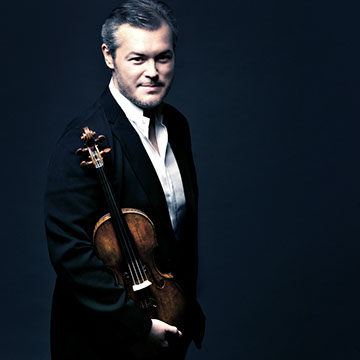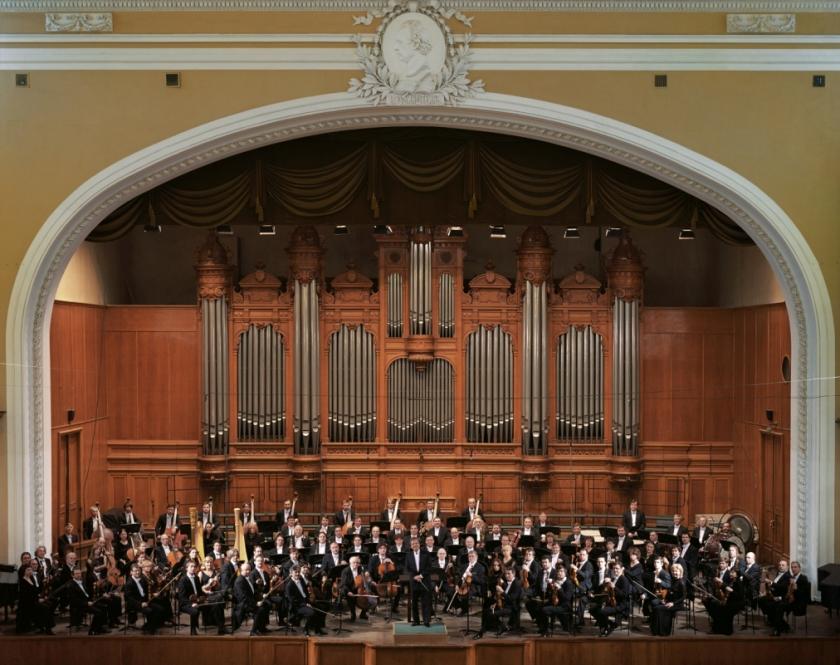Valery Gergiev once described Yevgeny Svetlanov’s USSR - later Russian - State Symphony Orchestra to me as “an orchestra with a voice”. Then Svetlanov died and the voice cracked. Which are the other big Russian personalities now? Gergiev’s own Mariinsky? I don’t hear it. Yuri Temirkanov can still bend the St Petersburg Philharmonic Orchestra to his own whim of iron. The Russian National Orchestra was never in the running. But the Tchaikovsky Symphony Orchestra of Moscow Radio, to give its full title, still sounds as deep and rich as it did when I last heard it live nearly 30 years ago.
You can certainly ascribe that to the long-term tenure of conductor Vladimir Fedoseyev, notching up four decades as paternalistic chief conductor which turn out to be not quite half of his surprisingly long life (he looks like a man in his 60s). I don’t buy all of Fedoseyev’s interpretative choices, and I sometimes question his musical taste, but there was enough cause for wonder in the team’s London programme, and it didn’t just rely on the star charisma of violinist Vadim Repin to overwhelm.
The relentless toccata with screams and whistling shells was more powerful than I've ever heard itHaving treated Birmingham to Elgar’s Enigma Variations on Saturday night – a reminder not just of the start of the UK-Russia Year of Culture but also of how big Elgar was in Russia for some years after the work’s 1899 premiere – the TSO put on a London pedestal the shattering, shattered edifice of Shostakovich’s most harrowing symphony, the wartime Eighth. The silky folds of the Russian strings – perspectives very difficult to achieve in the shallows of the Royal Festival Hall – and their firm double basses, aligned aloft on the left facing the audience, were quickly complemented by the infinite power they can unleash in long or slow crescendi. Woodwind and brass, it turned out, were keeping some force and garishness in check throughout the mighty first movement, to be unleashed in the symphony’s redoubled assaults later on. I admired Fedoseyev’s slow bludgeoning as the juggernaut of banal evil goes on the rampage – no Allegro, this – but much less the skimming over the vocal potential of the tragic cor anglais solo after the climax.
There seemed to be some fear of the quieter deeps. The other weakness of the performance was the application of the expressive phrasing Fedoseyev does so well to what should surely be the dead zone of the Passacaglia, a post-apocalyptic landscape with drifting shards of life (fluttertonguing flutes excellent). But the relentless toccata with screams and whistling shells that leads up to it was more powerful than I’ve ever heard it, violas digging into the factory-line of war, the trumpet solo in the satirical Khachaturian tune at the centre blistering in true Red Army style.
 The finale, far from showing the signs of weakness some accuse it of, reminds us how the process of violent oppression will be unleashed in human nature again and again; it was hard not to think of a brutal cavalcade from the 1905 massacre in St Petersburg’s Palace Square up to last week’s carnage in Kiev. Fedoseyev took its accumulation of dissonance very heavily before flaming to the last crisis. The coda of tentative hope was beautifully done.
The finale, far from showing the signs of weakness some accuse it of, reminds us how the process of violent oppression will be unleashed in human nature again and again; it was hard not to think of a brutal cavalcade from the 1905 massacre in St Petersburg’s Palace Square up to last week’s carnage in Kiev. Fedoseyev took its accumulation of dissonance very heavily before flaming to the last crisis. The coda of tentative hope was beautifully done.
No encore ought to follow, but if there had to be one, Elgar’s ‘Nimrod’ from the Enigma Variations was the noblest that could be expected, a reminder that this is no British flag-waving, pastoral Ukip ad but a noble slow movement to a German-born friend (A J Jaeger) based on a piano sonata by a German (Beethoven), a truly world-class Adagio. Then, with that soulful interlude standing between, we were into the bling that some Russian members of the audience were surely wanting as the hitherto economical Fedoseyev swung into showman mode with an outrageously fast, blurry and percussion-swamped charge through the Spanish Dance from Tchaikovsky’s Swan Lake. Last came a truncated Pomp and Circumstance March No. 1 with an abrupt conclusion (why ditch Elgar’s brilliant last word on the brilliant hurly-burly surrounding the big tune?)
Bling there certainly wasn’t back at the start of the concert with Vadim Repin (pictured above by Gela Megalidze) calling the dignified shots on Tchaikovsky’s Violin Concerto. One wondered how on earth he would sustain the orchestra’s slow opening burn, and the instrument sounded just ever so slightly off-centre at the start, but he went on to fill every moment with meaning and intent, giving minute breaths of fresh air to what sometimes comes across as pure show-offishness, as good as his interview word in the way he leaned in to conductor, first violins and wind soloists for a truly equal partnership.
The first movement cadenza had the extra gilding of Heifetz’s added double-stopping daring; the Canzonetta melted in its reprise with clarinet and flute adornments; and the finale was carefully brilliant until the third return of the main dance, when it suddenly took on a fresh dimension of excitement. Goosebumps of delight, then, and - since Repin and Fedoseyev, unlike Gergiev, Netrebko, Temirkanov and Bashmet, did not lend their names to the list of unworthies backing Putin's 2012 re-election campaign - unequivocal UK-Russia celebrations all round.















Add comment